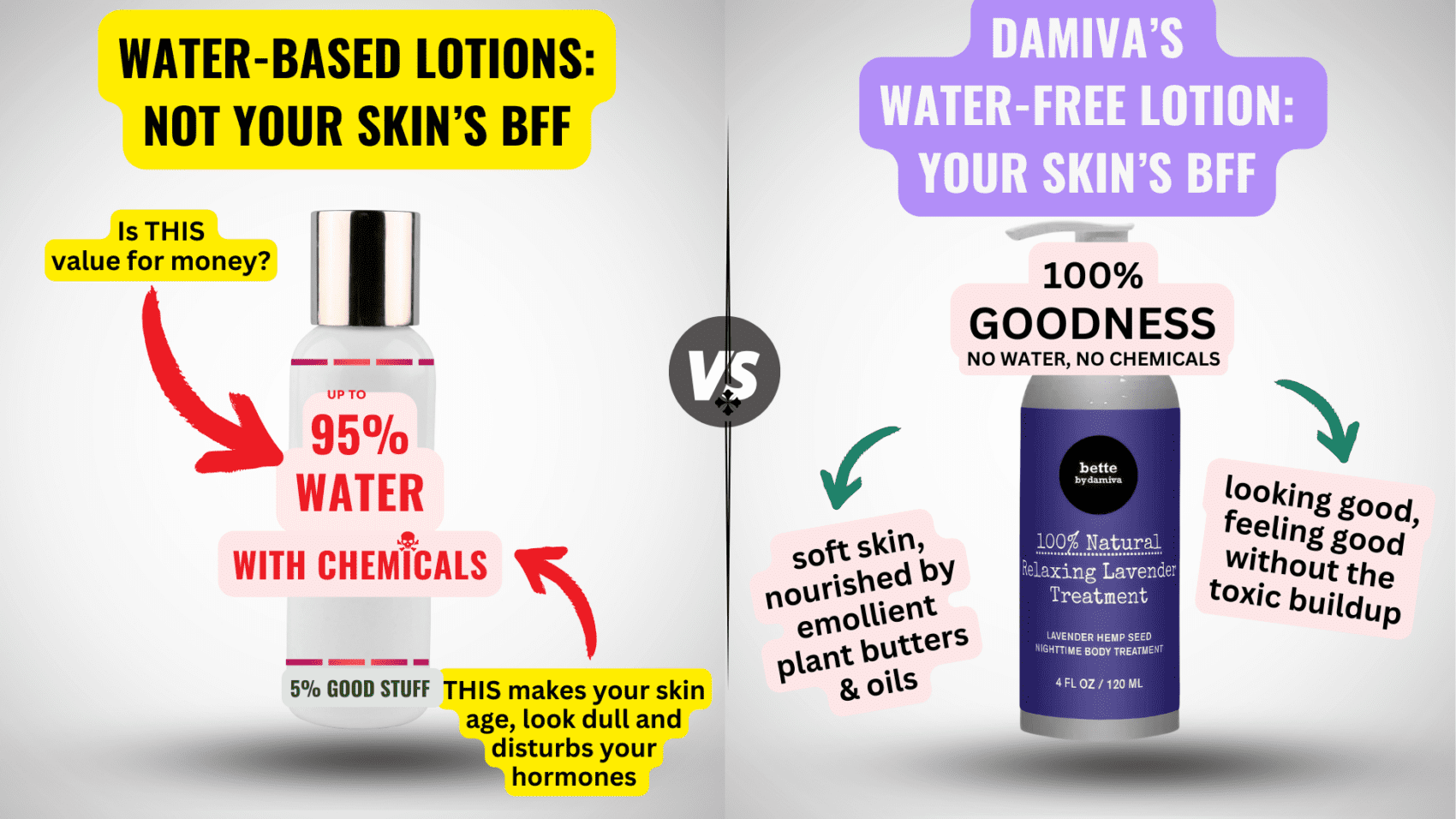Vaginal Health and Odor
When it comes to vaginal health, misinformation abounds. One of the most pervasive myths is that a healthy vagina should have no scent at all. This is simply not true. The vagina is a complex ecosystem that naturally produces fluids and has a unique scent. The idea that it should be odorless is a misconception that can lead to harmful practices, such as douching with products like Lysol, which was historically advertised for this purpose despite causing serious harm. It’s crucial to understand that a mild, musky scent is normal and that using products to mask or eliminate this natural odor can disrupt the delicate balance of the vaginal flora, leading to potential health issues.
Understanding the Natural Scent of a Healthy Vagina
A healthy vagina has a natural, mild scent that can be described as musky or earthy. This scent is the result of a combination of factors, including the presence of Lactobacillus bacteria, which help maintain an acidic pH and prevent infections. The scent can vary throughout the menstrual cycle and is influenced by hormones, sexual activity, and personal hygiene. It’s important to recognize that this scent is not unpleasant or foul; rather, it’s a sign that the vagina is functioning properly. The presence of a slight smell is normal and should not be a cause for concern.

Recognizing Individual Variations in Vaginal Odor
Just as each person has a unique body odor, so too does each vagina have a unique scent. This individual variation is influenced by genetics, diet, clothing, and lifestyle. It’s essential for women to become familiar with their own “normal” in order to detect any changes that may indicate an imbalance or infection. A sudden change in the scent, especially if accompanied by other symptoms such as itching, burning, or unusual discharge, may signal a need for medical attention. However, slight variations that align with the menstrual cycle or other non-pathological factors are typically not a cause for concern.
In summary, a healthy vagina has a natural scent that is unique to each individual. Dispelling myths and understanding the natural scent are key to maintaining vaginal health. Recognizing individual variations in odor empowers women to distinguish between normal fluctuations and potential health issues, promoting a proactive approach to their well-being.
Defining Normal Vaginal Odor
Common Descriptors of Vaginal Scent
The scent of a healthy vagina is influenced by a combination of factors, including the presence of normal bacterial flora. Descriptions of this scent vary, but some common adjectives include tangy, fermented, or sour. These odors are produced by lactic acid and other substances that maintain the vagina’s pH level between 3.8 and 4.5, which is essential for preventing the overgrowth of harmful bacteria and yeast. During menstruation, some may notice a metallic scent due to the presence of blood, which contains iron. A bittersweet or molasses-like aroma can also occur, reflecting minor fluctuations in the bacterial balance. Occasionally, a bleachy smell might be detected, often due to urine residue or as a sign of bacterial infection if accompanied by other symptoms.

⭐️⭐️⭐️⭐️⭐️ “Love Damiva MAE. It was recommended by my doctor. Easy to apply, nice fragrance. I would definitely recommend this.”
Paula L, Damiva Mae Customer
⭐️⭐️⭐️⭐️⭐️ “This is a great product. It helps a lot with dryness and is so easy to use.” Anne W., Damiva Cleo Customer
The Importance of Knowing Your ‘Normal’
Understanding your own baseline vaginal odor is crucial for recognizing when changes may indicate a health issue. Each individual’s “normal” can differ, influenced by their unique physiology and lifestyle. By being attentive to the usual scent during various phases of the menstrual cycle, after sexual activity, or in response to certain foods, you can more readily identify when an odor deviates from your typical pattern. This awareness is key to early detection of potential infections or other medical conditions that may require attention.
Environmental and Lifestyle Factors Influencing Vaginal Health
Several external factors can impact vaginal health and, consequently, its odor. These include:
- Hygiene practices: Over-washing or using harsh soaps can disrupt the natural balance of bacteria, leading to odor changes.
- Clothing: Tight-fitting garments or non-breathable fabrics can trap moisture and heat, fostering an environment for bacterial growth.
- Diet: Certain foods and beverages, like garlic, onions, or coffee, can alter the natural scent.
- Sexual activity: Semen can affect vaginal pH, temporarily changing the odor.
- Medications: Antibiotics and other drugs can influence the bacterial flora, affecting the scent.
- Stress: Stress can increase sweat production, which may mix with vaginal bacteria to produce a stronger odor.
By understanding these factors, individuals can take proactive steps to maintain a healthy vaginal environment and manage natural odors effectively.
Factors Contributing to Changes in Vaginal Odor
Impact of Antibiotics and Medications
The delicate balance of bacteria in the vagina can be disrupted by the use of antibiotics and other medications. Antibiotics, while effective in treating bacterial infections, can sometimes eliminate not only harmful bacteria but also the beneficial lactobacilli that are essential for maintaining a healthy vaginal pH. This disruption can lead to an overgrowth of yeast or other bacteria, resulting in changes in vaginal odor. It’s important for individuals to be aware of this potential side effect and to consult with healthcare providers about ways to mitigate it, such as the use of probiotics.
Sexual Activity and Vaginal Flora
Sexual activity can introduce new bacteria to the vaginal environment, potentially altering the natural flora. Semen, which is alkaline, can affect the vagina’s pH balance, sometimes leading to a temporary change in odor. Additionally, having multiple sexual partners or a new partner can increase the risk of sexually transmitted infections (STIs), which can significantly alter vaginal odor. Using barrier methods of contraception, such as condoms, can help maintain the natural balance of vaginal flora and prevent the introduction of potentially harmful bacteria.
Hygiene Practices and Their Effects
Proper hygiene is crucial for maintaining vaginal health, but overzealous or incorrect practices can have the opposite effect. Over-washing, especially with harsh soaps or douches, can strip the vagina of its natural oils and beneficial bacteria, leading to odor changes. Conversely, inadequate hygiene can also result in unpleasant odors due to the accumulation of sweat, bacteria, and bodily fluids. It’s recommended to wash the vulva with warm water and mild, unscented soap, avoiding the internal vaginal canal, which is self-cleaning.
Diet and Consumption Habits
What one eats can influence the natural scent of the vagina. Foods with strong odors, such as garlic, onions, and spices, can lead to changes in vaginal odor as the body metabolizes these foods. Similarly, consuming a large amount of red meat, alcohol, and caffeinated beverages can also affect the body’s natural odor. Staying hydrated and maintaining a balanced diet rich in fruits, vegetables, and whole grains can help keep vaginal odor within a normal range. It’s also worth noting that smoking can negatively impact the natural scent due to the toxins it introduces into the body.

THEN IT CONTAINS TOXIC CHEMICALS. WHY RISK IT GETTING SICK? GO CHEMICAL FREE.

Medical Conditions Affecting Vaginal Odor
Bacterial Vaginosis (BV) and Its Symptoms
Bacterial Vaginosis (BV) is the most common vaginal infection in women of childbearing age. It’s caused by an imbalance in the vaginal flora, leading to a decrease in beneficial lactobacilli and an overgrowth of other types of bacteria. This imbalance can result in a fishy odor, which is often more noticeable after sexual intercourse. Other symptoms of BV include:
- A thin, gray or white vaginal discharge
- Vaginal itching
- Burning during urination
It’s important to note that not all women with BV will experience these symptoms. If you suspect you have BV, it’s crucial to seek medical advice as it can increase the risk of STIs and other complications if left untreated.
Trichomoniasis: A Common STI with Odor Symptoms
Trichomoniasis, often referred to as “trich,” is a sexually transmitted infection caused by the parasite Trichomonas vaginalis. While many individuals with trichomoniasis do not exhibit symptoms, those who do may notice a fishy or musty vaginal odor. This STI can also cause symptoms such as:
- A clear, white, yellow, or greenish vaginal discharge
- Genital itching, burning, redness, or soreness
- Discomfort during urination and sexual intercourse
Trichomoniasis is treatable with prescribed medication, but it’s essential for both partners to be treated simultaneously to prevent reinfection.
Other Infections and Their Impact on Vaginal Scent
While BV and trichomoniasis are among the most common infections to cause changes in vaginal odor, other conditions can also affect the scent. These include:
- Yeast Infections: Typically characterized by a thick, white discharge and intense itching, yeast infections can sometimes produce a mild, bread-like smell due to the overgrowth of yeast.
- Sexually Transmitted Infections (STIs): Other STIs, such as gonorrhea and chlamydia, may also lead to changes in vaginal odor, often accompanied by other symptoms like pain, discharge, and bleeding.
- Forgotten Tampon: A rare but notable cause of a foul vaginal odor is a forgotten tampon, which can lead to a buildup of bacteria and a very unpleasant smell.
It’s important to recognize that any persistent, unusual, or foul vaginal odor, especially when accompanied by other symptoms, warrants a visit to a healthcare provider. These odors are often a sign of an underlying condition that requires medical attention and treatment.
By the way, something for you, a little gift!!!
I am just in the middle of publishing my book. It’s about How women can balance their hormones. One part is about food and diet, of course.
Follow this link and enter your email.
I will send you this part of the book for free once the book is published. It has many concrete, practical tips and recipes and will help you feel better during menopause or times of Big hormonal fluctuations.
Annette, Damiva Lead for Health & Wellness

Dietary Influences on Vaginal Odor
Foods and Beverages That May Alter Vaginal Scent
The foods and beverages we consume can have a notable impact on our body’s natural odors, including the scent of the vagina. While the vagina has its own natural scent, certain foods are believed to cause changes in vaginal odor due to their influence on body chemistry and sweat production. Here are some common dietary culprits:
- Spices, Onion, and Garlic: These foods can cause a strong body odor and may also affect the scent of the vagina through sweat glands in the surrounding area.
- Red Meat and Dairy: High consumption of these foods may lead to a more intense and sour genital odor.
- Alcohol and Coffee: These beverages can lead to dehydration, which may intensify the natural vaginal odor.
- Fruits and Vegetables: Citrus fruits and foods like pineapple are often claimed to improve the sweetness of vaginal secretions, while cruciferous vegetables may contribute to a more pungent smell.
It’s important to note that while these foods may influence odor, they do not cause a foul or abnormal smell; such odors are typically indicative of an infection or imbalance and should be evaluated by a healthcare provider.
Understanding the Connection Between Diet and Body Odor
The connection between diet and body odor, including vaginal scent, is complex and not fully understood. However, it is known that what we eat can affect our body’s secretions and excretions. Foods that are metabolized into strong-smelling compounds can be excreted through sweat, urine, and other bodily fluids, potentially altering the natural scent of the vagina.
For example, foods high in sulfur, such as broccoli and asparagus, can produce a strong smell when broken down by the body. Similarly, spices and herbs can impart their aroma onto sweat, which may then influence the scent of the vulva and vagina.
Additionally, the vaginal environment thrives at a slightly acidic pH, which is maintained by beneficial bacteria such as Lactobacilli. A diet high in sugars and simple carbohydrates can disrupt this balance, potentially leading to an overgrowth of yeast or harmful bacteria, which can change the vaginal odor.
Hydration also plays a crucial role in diluting bodily secretions. Drinking plenty of water can help to minimize strong odors and maintain a healthy vaginal environment.
Ultimately, while certain foods may have a mild effect on vaginal odor, significant or persistent changes in scent are more likely to be related to health issues rather than diet alone. Maintaining a balanced diet and staying hydrated are key components of overall vaginal health, but they are not a cure-all for vaginal odor concerns.
In conclusion, while diet can influence the natural scent of the vagina, it is just one of many factors. A healthy vagina has a unique scent that can vary with hormonal changes, menstrual cycle, and individual body chemistry. It is essential to recognize what is normal for you and to consult with a healthcare provider if you notice any unusual or unpleasant changes in odor.

From unhappy, dry, and sandpaper to silky, smooth and feeling good. That’s Cleo. Cleo is a 100% natural labial balm to moisture and soothe “your other lips”. Cleo is chemical-free, water-free, pH optimized and helps maintain and restore your delicate labial skin’s natural flora. Ideal for daily use or as needed. Get the most silky, lovable lips ever.
Hygiene and Vaginal Odor Management
Best Practices for Vaginal Hygiene
Maintaining good vaginal hygiene is crucial for preventing unpleasant odors and infections. Here are some best practices:
- Wash with care: Use lukewarm water to gently clean the vulva. Avoid using harsh soaps or body washes, as these can disrupt the natural pH balance.
- Wipe correctly: Always wipe from front to back after using the toilet to prevent bacteria from the anus from spreading to the vagina.
- Choose the right underwear: Wear breathable, cotton underwear and change them daily. Synthetic fabrics can trap moisture and create a breeding ground for bacteria.
- Menstrual hygiene: Change tampons, pads, and menstrual cups regularly during your period to prevent odors and infections.
- Avoid douching: The vagina is self-cleaning, and douching can disrupt the natural balance of bacteria and increase the risk of infection.
Common Misconceptions About Vaginal Cleaning
There are several misconceptions about vaginal cleaning that can actually harm vaginal health:
- Using scented products: Perfumed soaps, sprays, and wipes may seem like a good way to mask odor, but they can irritate the vagina and lead to infections.
- Douching is necessary: Despite what advertisements suggest, douching is not required for cleanliness and can cause more harm than good.
- Intimate washes are better: Many intimate washes claim to be pH-balanced, but plain water is often the best choice for washing the vulva.

Enjoy swimming without the feeling of dry and sandpaper afterwards…
Annette Garcea, Damiva
Preventing Bacterial Buildup and Infections
To prevent bacterial buildup and infections that can cause unpleasant odors:
- Maintain a healthy diet: Eating a balanced diet rich in fruits, vegetables, and probiotics can support the natural flora of the vagina.
- Stay hydrated: Drinking plenty of water helps to flush out toxins and maintain overall health, which can positively affect vaginal health.
- Practice safe sex: Use condoms to reduce the risk of sexually transmitted infections (STIs) that can alter vaginal flora and odor.
- Regular check-ups: Visit your healthcare provider for regular pelvic exams and STI screenings to catch and treat any potential issues early.
Remember, a healthy vagina has a natural scent that can vary with hormonal changes, diet, and activity level. It’s important to recognize what is normal for you and to consult a healthcare provider if you notice any sudden or strong odors, as this could be a sign of an underlying condition.

Popular Read
Treating and Preventing Unpleasant Vaginal Odor
Medical Treatments for Infections Causing Odor
Unpleasant vaginal odor is often a sign of an underlying infection that requires medical treatment. The most common infections associated with a change in vaginal scent are Bacterial Vaginosis (BV) and Trichomoniasis. BV is typically treated with antibiotics such as metronidazole or clindamycin, which can be administered orally or topically. Trichomoniasis, a sexually transmitted infection, is also treated with metronidazole or tinidazole. It’s crucial to complete the full course of prescribed medication, even if symptoms improve before the medication is finished.
For yeast infections, which can cause a sweeter, beer-like odor, antifungal medications like fluconazole are commonly prescribed. Over-the-counter treatments are also available, but it’s advisable to consult with a healthcare provider for proper diagnosis and treatment recommendations.

If you wonder, if this discomfort and the dryness down there will be there forever….
Try Mae. Mae is gives you back comfort, control, re-assurance, and re-connecting.
Mae is more than just a vaginal moisturizer; it’s your ally for intimate natural health, rediscovering joy, cultivating comfort, and even igniting sparks of intimacy and rekindled romance. Mae is your companion in rejoicing in your femininity at every stage of life. Learn more…
Lifestyle Adjustments for Odor Prevention
Maintaining a healthy vaginal environment is key to preventing unpleasant odors. Here are some lifestyle adjustments that can help:
- Hygiene: Wash the vulva with warm water and mild, unscented soap. Avoid over-washing, which can disrupt the natural flora.
- Clothing: Wear breathable, cotton underwear and avoid tight-fitting clothing to reduce moisture buildup.
- Diet: Consume probiotics and stay hydrated to support a balanced vaginal pH.
- Sexual Health: Use condoms to prevent semen from altering vaginal pH and to protect against STIs.
- Menstrual Products: Opt for unscented tampons and pads, and change them regularly.
It’s also important to avoid douching and the use of scented sprays or powders, as these can disrupt the natural balance of bacteria and lead to infections.
When to Seek Medical Advice
While many vaginal odors are normal, certain smells can indicate an infection or other health issue. Seek medical advice if you experience:
- A strong fishy or foul odor
- Changes in discharge color or consistency
- Itching, burning, or irritation
- Discomfort during urination or intercourse
- Any other symptoms that seem unusual or persist over time
Remember, getting to know your “normal” can help you recognize when something is off. If you’re unsure whether a scent is cause for concern, it’s always best to consult with a healthcare provider. They can provide a proper diagnosis and treatment plan to address any underlying issues and help maintain your vaginal health.












